My child is a picky eater. It’s a challenge to get her to eat three full meals a day. Worrying about whether she meets the nutritional requirements for her age keeps me awake at night, thinking of other ways to help her and get her to eat.
It is crucial for kids to get the right nutrition to keep them strong and healthy, and also to sustain their growth. Aside from carbohydrates and fats, our kids also need protein and calcium — these are the two I’m worried about as these can be found in food sources that most kids are not overly fond of (mine included). So the question remains, are our kids getting enough protein and calcium?
Protein and kids
Kids need protein because it builds, maintains, and repairs body tissue. So protein is essentially important for growing kids because as the Institute of Medicine puts it: protein is “the major structural component of all cells in the body.” It also helps boost our kids’ immunity and participates in blood clotting and wound healing.
Low protein intake can result in protein deficiency in kids, which might then cause changes in their body composition that could develop over a long period of time, such as muscle wasting. Protein deficiency can affect all aspects of body function so it can also be associated with many symptoms. Some symptoms of protein deficiency include edema (or manas, characterized by swollen or puffy skin), fatty liver (accumulation of fats in liver cells), skin, hair, and nail problems (hair thinning, faded hair color, flaky skin, redness, or patches of depigmented skin), loss of muscle mass (or muscle degeneration), stunted growth especially in kids, and increased severity of infections (because of impaired immune function).
Calcium and kids
Kids need calcium, on the other hand, to build strong bones (we only get a chance to build strong ones — during our childhood and adolescent years!), keep the nerves and muscles working, and even maintain healthy hearts. It also participates in blood clotting, regulates muscle contraction, participates in nerve impulse transmission, and prevents fractures.
Young kids and babies need calcium (and Vitamin D) to prevent Rickets — a disease that can cause soft bones, bow legs, stunted growth, and even sore and weak muscles. At the same time, low calcium intake throughout childhood could lead to a higher risk of osteoporosis later in life. Osteoporosis can lead to fragile bones and a higher risk of fractures.
Is my child getting enough protein and calcium?
Here’s the tricky part, protein and calcium requirements will depend on your kid’s age and gender. But here’s a simple chart that might help you out:
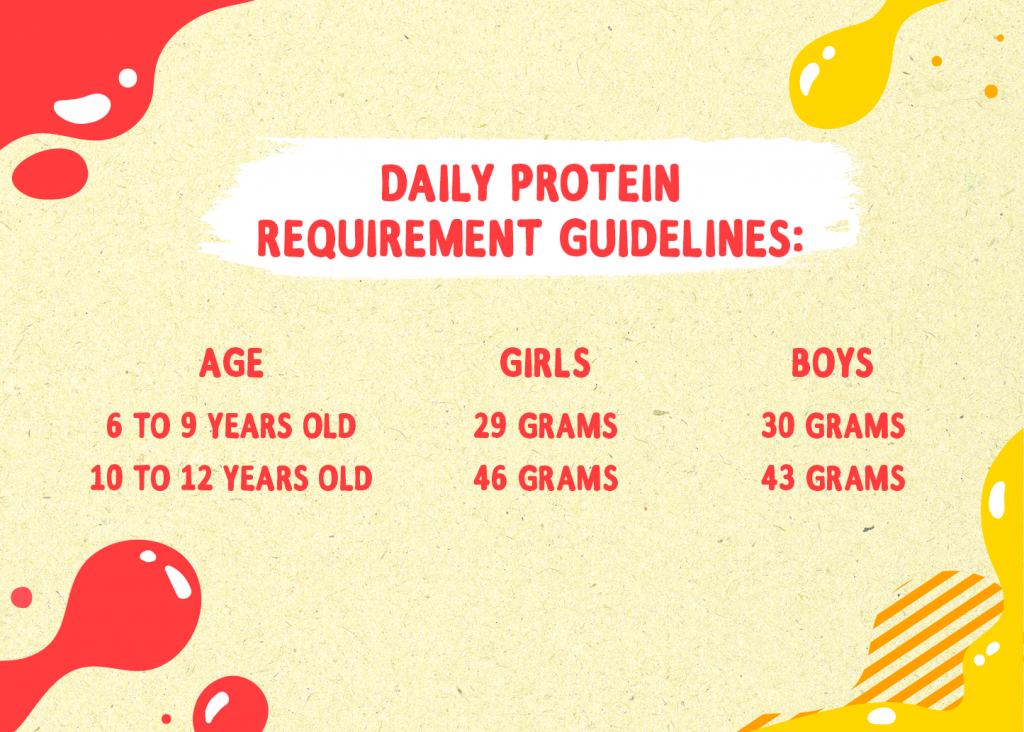
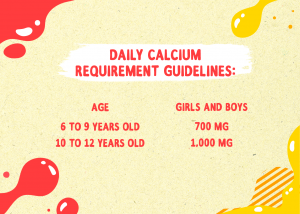
What protein and calcium sources can I include in my child’s diet?
So, now that we know what our kids need, the next step is to ensure that they get it. To give you an idea, here are a few protein and calcium sources that we can include in our kids’ diet:
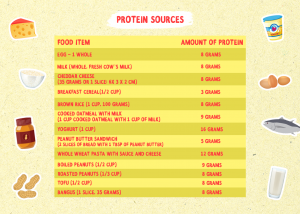
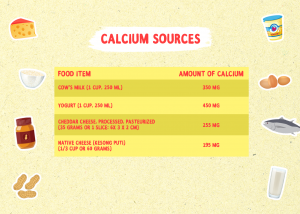
But what to do if our kids cannot eat all that food in one day? Then perhaps the next best thing is to offer them a nutritious drink. One that’s yummy (so no problems asking them to drink it!) and can possibly help them meet their required protein and calcium intake for the day.
Lakasarap Prottie®
Prottie® is a soymilk drink mix that’s rich in protein and calcium. For every glass of Prottie®, your child can get:
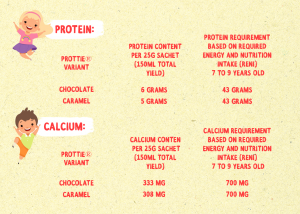
At the same time, Prottie® as a soymilk drink offers the added benefits of soy protein. Soy protein has all the essential amino acids necessary for human nutrition, is considered as a high-quality protein (due to its complete essential amino acid content), and has a high protein digestibility compared to meats.
With a balanced diet, Prottie® can possibly help our kids meet their required protein and calcium requirements per day and therefore have malakas na katawan at matatag na buto.
Include a glass of Prottie® to your child’s mealtimes by purchasing via Lazada. Or visit their Facebook page to learn more.
References: Mayo Clinic, Healthline, KidsHealth, Better Health Channel, Real Mom Nutrition
*Food and Nutrition Research Institute- Department of Science and Technology (FNRI-DOST). (2015). Philippine Dietary Reference Intake. FNRI Bldg., DOST Compound, Bicutan, Taguig City, Metro Manila, Philippines.





